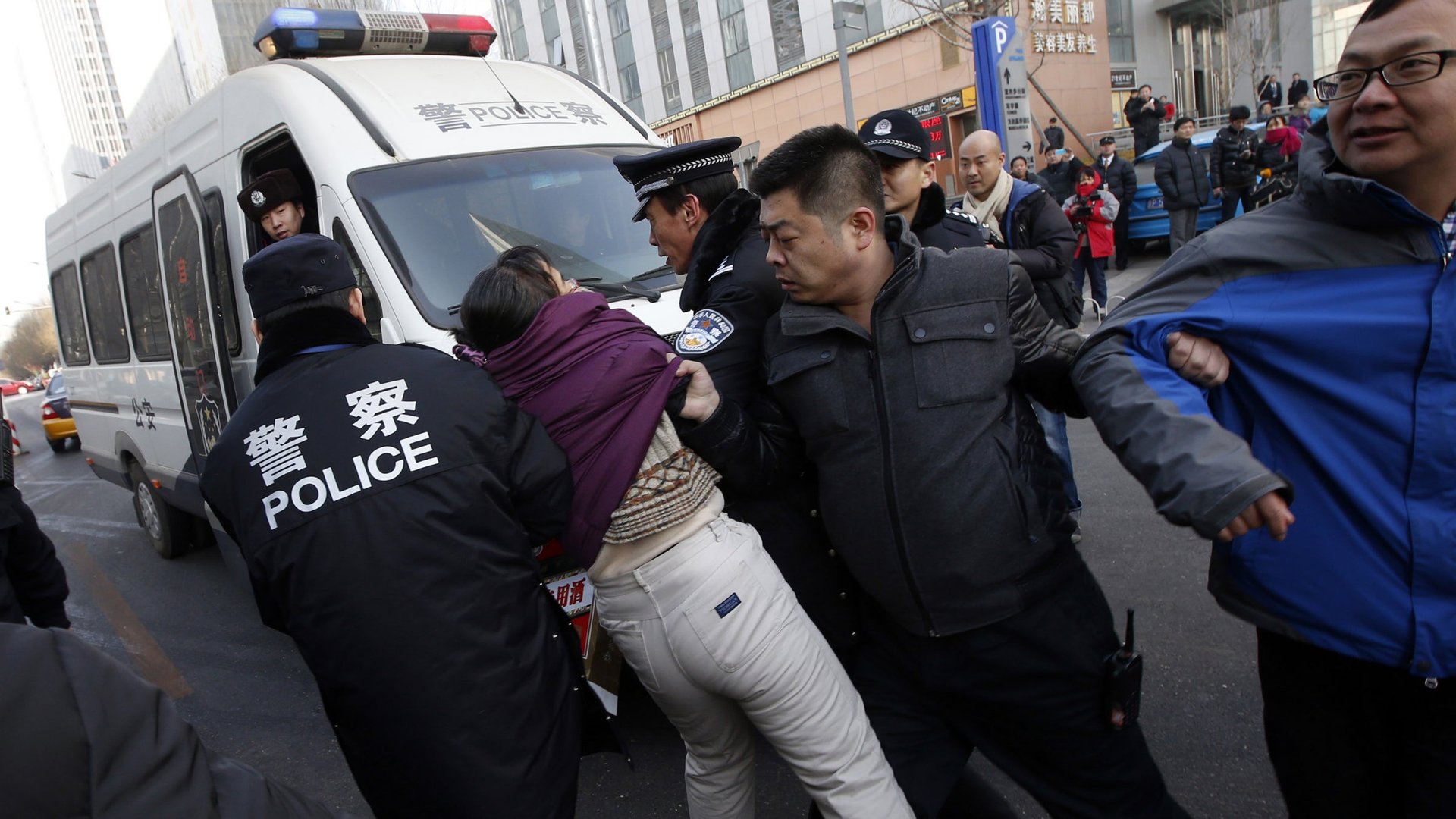China’s government has no problem talking about corruption—so long as nobody else does
Chinese president Xi Jinping has made a sweeping corruption crackdown the cornerstone of his administration. But there’s a catch: only the Communist party is allowed to discuss it.


Chinese president Xi Jinping has made a sweeping corruption crackdown the cornerstone of his administration. But there’s a catch: only the Communist party is allowed to discuss it.
Two episodes today—a new report on China’s top leaders’ use of offshore tax havens, and the hush-hush trial of a human rights lawyer—make the party’s monopoly on topic all the clearer. Look no further than items listed on Freeweibo, a site that collects “tweets” on Sina Weibo that the government has since erased. Four of the top five involve corruption. Xu Zhiyong, whose trial started today, is the most-discussed taboo; the report, from the International Consortium of Investigative Journalists (ICIJ), is second-highest on the list.
One of China’s most prominent human-rights lawyers, Xu rose to fame by representing parents whose children were poisoned by contaminated milk in 2008. He also took on cases highlighting China’s “black jails,” illicit prisons the government used to hold people in secret, as China Law & Policy explains. Even after landing on the government’s bad list, Xu launched a grassroots group called the New Citizens’ Movement to promote rule of law and protect civil rights. In Dec. 2013, the police indicted Xu for leading protests calling for the public disclosure of government officials’ wealth. This is something the government itself has pursued, but others are apparently not allowed to pursue it.
Xu’s trial started in Beijing today; he and his lawyers say the court proceedings are illegal, reports the BBC. Holding the trial right before Chinese New Year holiday didn’t have the desired effect: Dozens of supporters demonstrated in front of the Beijing courtroom today, prompting police to manhandle foreign reporters filming their protests.
Online, the government’s approach was similarly scorched-earth. A search for Xu’s name (registration required; link in Chinese) on Sina Weibo earns the response that “according to relevant laws, regulations and policy, search results for ‘Xu Zhiyong’ aren’t allowed to be displayed.”
Unlike searches for “Xu,” censors have scrubbed the keywords ”ICIJ” and “offshore” (registration required; link in Chinese) of any critical content, but haven’t outright blocked them. Still, because it blocked the ICIJ site—as well as international news sites that cooperated with it—tweets still linking to the ICIJ report don’t lead anywhere.
Why leave these up? Tweets on Sina Weibo referencing overseas holdings remind people how much wealth Chinese officials and their business confederates hold overseas, and where—hardly news to the Chinese public. Xu’s and his colleagues’ activism, on the other hand, poses a more delicate question: Can such corruption be stamped out without transparency?
Since no one who’s anyone in the Communist party has gotten there thanks to clean hands, this isn’t a question the party is keen to answer. And the more it becomes clear that Xi’s much-vaunted crusade against corruption is really a cherry-picking expedition, the more the public resents its lack of say in who gets to make those decisions.